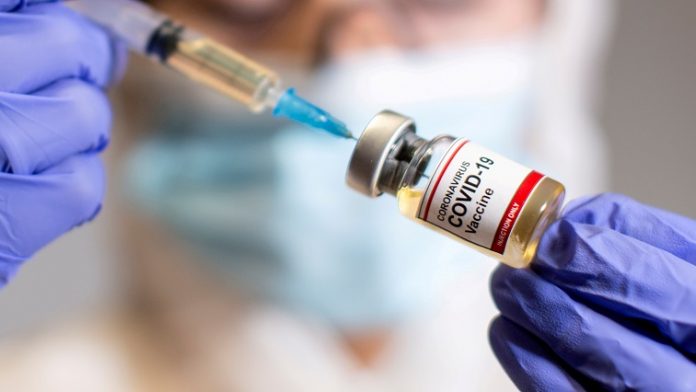
|
Getting your Trinity Audio player ready...
|
The COVID-19 delta variant, or B.1.617.2, is labeled as a “variant of concern” for good reason. According to the Centers for Disease Control and Prevention (CDC), an increase in COVID-19 infections in the United States is partly due to the highly transmissible delta variant. The average number of confirmed delta cases has increased substantially since the variant was identified in the United States in March 2021.
Approximately 83% of new COVID-19 cases during the week of July 3, 2021, were confirmed to be of the delta variant, CDC Director Dr. Rochelle Walensky revealed (via CNBC). According to Public Health England, the delta variant accounts for about 99% of new COVID-19 cases in the United Kingdom.
According to a June 2021 study in the British Medical Journal, the delta variant is 60% more transmissible than the alpha variant, which is already more transmissible than the original COVID-19 virus. So, what does this all mean for everyone? Will the COVID-19 vaccines from Pfizer, Moderna, and Johnson & Johnson protect you from the delta variant?
Read more:
- Sierra Leone parliament abolishes death penalty
- Australia Covid: Arrests at anti-lockdown protests
- Narrow escape: Sissala West MP survives armed attack
How effective are COVID-19 vaccines against the delta variant?
“In a multistate network of U.S. hospitals during January–March 2021, receipt of Pfizer-BioNTech or Moderna COVID-19 vaccines was 94% effective against COVID-19 hospitalization among fully vaccinated adults,” confirmed the CDC. The Johnson & Johnson vaccine, which requires one shot, was considered 66.3% effective at protecting against hospitalizations from the virus in fully vaccinated people (via CDC).
Pfizer revealed it is working on a booster shot made specifically to target and protect against the delta strain (via Reuters). Moderna also released a statement on June 29, 2021, saying that its vaccine “should remain protective against newly detected variants.” Nevertheless, a Public Health England review released in June 14 2021 found that the two-dose COVID-19 vaccines are “highly effective” at protecting people from getting hospitalized from the virus.
Just how effective? According to studies cited by Healthline, the Pfizer vaccine looks to be 64 to 96% effective “against symptomatic illness” from the delta variant after two doses. A further study showed the Moderna vaccine to be 72% effective after one dose, and it’s inconclusive for the Johnson & Johnson vaccine. So what should you do? The CDC urges you to get vaccinated. Vaccinated individuals are less likely than someone unvaccinated to get a moderate to severe case of COVID-19.
COVID-19 has long been associated with symptoms such as loss of smell and taste, but as the Delta variant spreads across the globe and begins to dominate COVID-19 cases in countries such as the United States and United Kingdom, it may no longer present in the same way. According to data collected as part of the Zoe COVID symptom study, most people who catch the Delta variant exhibit milder symptoms that resemble a bad cold. While the most common COVID-19 symptoms used to include cough and loss of smell and taste, cough has fallen to the fifth most common symptom among people with the Delta variant, and loss of taste and smell no longer ranks among the top ten (per The Guardian). Instead, the most common symptoms now include headache, a sore throat, a runny nose, and sneezing.
This is problematic because many people with the virus may mistakenly believe that they just have a cold, and for that reason, they may continue to go out as usual, exposing others to the virus. According to Tim Spector, epidemiology professor at King’s College London, this could be fueling the recent spike in COVID-19 cases in the United Kingdom. The fact that the Delta variant is 60% more transmissible than the Alpha variant doesn’t help, either (per Nature).
While the Delta variant may present as a cold for some people, it can be deadly for others
According to The Guardian, Spector advises people with cold symptoms to quarantine and get tested for COVID-19, because even if the symptoms are mild for you, that won’t necessarily be the case for somebody else. According to a Scottish study, hospitalization rates are twice as high among people with the Delta variant, especially among high-risk groups (per The Lancet).
Although vaccines remain effective against hospitalization and death from the Delta variant, not everyone is able to get vaccinated (per Healthline). In addition, viral spread could enable mutations that may eventually circumvent the vaccines altogether. We have already seen some research that suggests the vaccines are becoming less effective at preventing symptomatic disease from the Delta variant compared to other forms of COVID-19 (per New York Times). The last thing we want is a variant that starts cutting into the vaccine’s effectiveness against severe illness. For these reasons, it is important for people with symptoms of the Delta variant to get tested, and take steps to avoid spreading their infection to others.
Healthdigest.com



